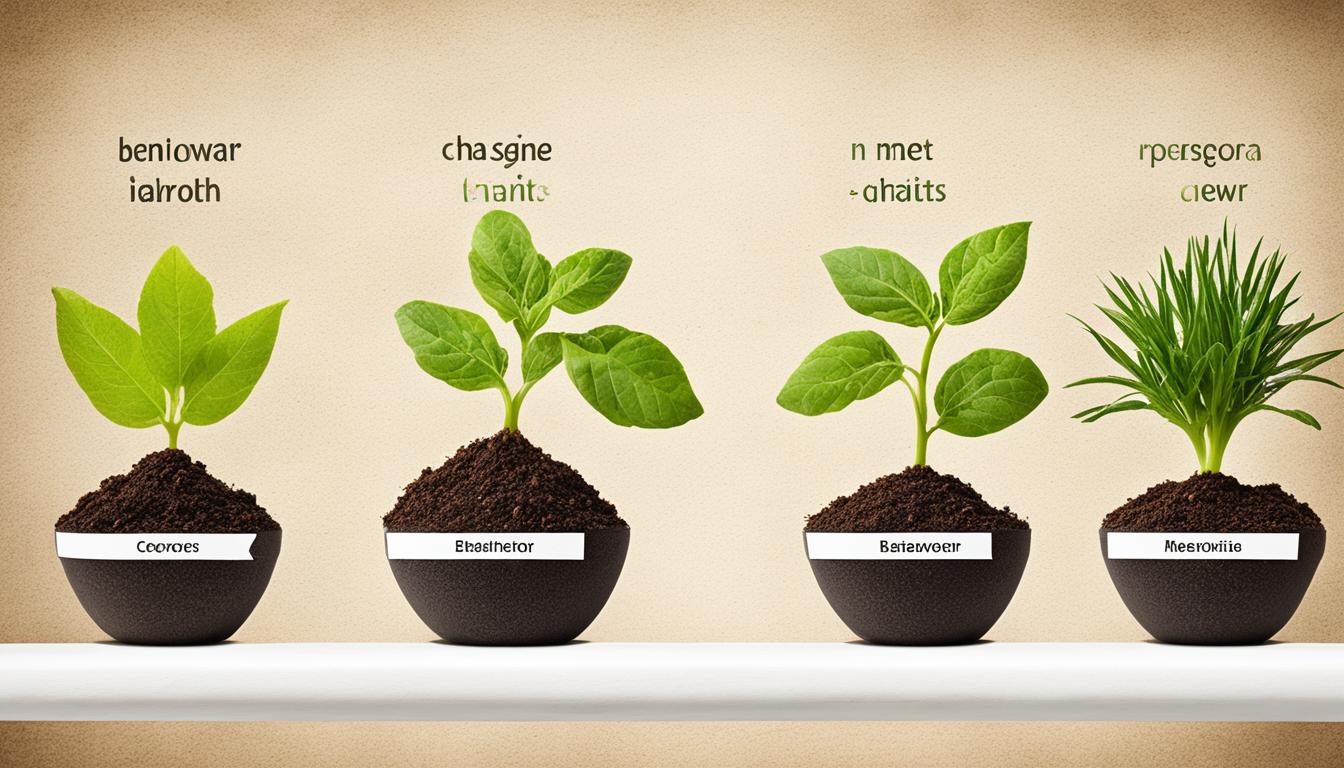
Welcome to the world of behavior modification! This article will guide you. You will learn to understand and change your habits for lasting change. Habits are a big part of our daily lives. By changing them, we can open new doors.
At the heart of every habit is the habit loop. This includes cue, routine, and reward. Knowing this loop lets us change our habits. We start by picking a habit to change. We look at its cue, routine, and reward. Then, we come up with a new routine.
Changing habits takes time and consistency. It doesn’t happen quickly. But with the right steps and mindset, you can change your habits for the better. Are you ready to start this journey? Let’s begin!
Key Takeaways:
- Understand the habit loop and how it influences behavior.
- Identify the cue, routine, and reward of your habits.
- Create a new routine that aligns with your desired behavior.
- Focus on changing one habit at a time for better success.
- Repetition and self-reinforcement are key to making new habits stick.
Understanding the Power of Habits
Researchers found a three-step pattern that is at the heart of every habit. This pattern has the cue, routine, and reward. We’ll explore each part to grasp the power of habits better.
The Cue
The habit process starts with the cue. It’s the signal for our brain to start a behavior. Cues can be things around us or feelings that make our brains start a specific action. For instance, the smell of coffee in the morning can make us want to drink a cup.
The Routine
The next part is the routine itself. It’s the action we do because of the cue. This could be brushing teeth, running, or checking social media. Routines are the behaviors we do automatically, without thinking much.
The Reward
The habit loop ends with the reward. It’s what our brain gets after the routine, helping it decide if the habit is good. Rewards can come right away or later. Quick rewards, like feeling fresh after brushing teeth, make us happy immediately. Long-term rewards, like better health from running, take more effort.
Knowing this pattern helps us understand how habits form. It also shows us how to change them. We can adjust the cue, routine, or reward to change our habits for the better.
Next, we’ll look into ways to change habits. Let’s keep learning about behavior change.
Strategies for Changing Habits
Changing habits can be hard, but the right strategies make it possible to succeed. One big mistake is trying to change too much at once. This often leads to feeling overwhelmed. Instead, focus on one habit at a time and do it well.
It’s important to take small steps. This way, you increase your chances of success. And you build momentum for more changes.
Anticipating pitfalls is key to changing habits. Understand the challenges you might face. This way, you can prepare for them. For example, if stress makes you snack, plan other ways to cope.
Have deep breathing exercises or walks ready as alternatives. Dealing with pitfalls beforehand keeps you on track. This helps you avoid old habits.
Changing one habit can improve other parts of your life too. This is called the ripple effect. For example, exercising can lead to eating better and sleeping more.
Focus on one habit at a time. This creates a positive domino effect. That means one good change leads to more.
The Power of Reframing
Seeing your habits in a new light helps too. Think about what you will gain, not what you lose. If you want to eat less sugar, think about the energy you’ll get.
By seeing changes as positive, you feel excited and motivated. This keeps you committed.
Disrupting Routines
Routines influence our habits a lot. To change, shake up your routines. If you watch TV after dinner, try something new like reading.
Changing the routine breaks the link with old habits. This lets new behaviors grow.
It takes time and effort to change habits, but it is doable. Focus on one habit, deal with challenges, see changes positively, and shake up routines. With these strategies, you can keep up good habits.

Conclusion
Changing our behavior and forming new habits is key to lasting change in our lives. By learning how habits work, like the habit loop, we can change old habits. Understanding cues, routines, and rewards helps us do this.
Focusing on one habit at a time helps us succeed. It’s important to choose habits that match our values and goals. This means stopping old routines that don’t help us anymore.
Repeating new habits and rewarding ourselves makes them stick. This builds strong brain paths that support change. Let’s use these strategies every day, change our habits, and make our lives better.
FAQ
How do habits form?
What is the habit loop?
How can I change my habits?
What is the three-step neurological pattern that forms the core of every habit?
How can I create a new habit loop?
What are common pitfalls when changing habits?
How can I maintain healthy habits?
What strategies can aid in changing habits?
How can behavior change and habit formation create lasting change?
What is the key to making new habits stick?
How can I transform my habits and improve my life?
Source Links
- https://learningcenter.unc.edu/tips-and-tools/changing-habits/
- https://www.psychologytoday.com/us/blog/in-practice/202304/6-surprising-ways-to-change-habits-and-transform-your-life
- https://www.gsb.stanford.edu/insights/building-habits-key-lasting-behavior-change




